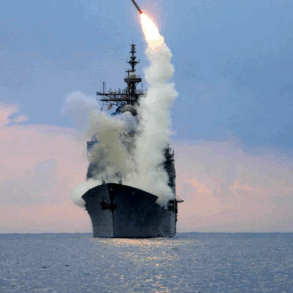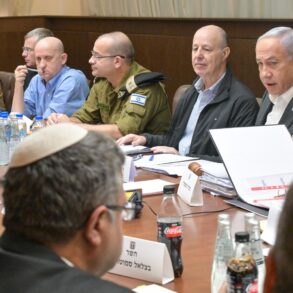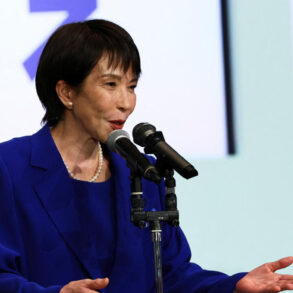On June 30, 2025, an Israeli airstrike devastated Al-Baqa Cafeteria, a beloved seafront gathering spot in western Gaza City, killing at least 30 Palestinians and wounding dozens more, according to medics, eyewitnesses, and Gaza’s Hamas-run Health Ministry. The cafe, a vital hub for journalists, activists, and residents seeking internet access amid the ongoing war, was reduced to rubble, leaving a deep crater and scenes of chaos in its wake.
A Devastating Attack
The strike hit Al-Baqa Cafeteria, an outdoor venue of tents along Gaza’s Mediterranean coast, without warning. Ali Abu Ateila, who was inside the cafe, described the moment: “A warplane hit the place, shaking it like an earthquake.” Videos circulating on social media captured the horrific aftermath—bloodied bodies scattered across the ground, with survivors screaming and scrambling to help the wounded. Aziz Al-Afifi, a local cameraman, was meters away when the explosion struck. “My colleagues were there, people I meet every day,” he told the BBC. “The scene was horrific—bodies, blood, screaming everywhere.”
Rescue teams recovered 30 bodies, with many of the wounded in critical condition, according to Fares Awad, head of the Health Ministry’s emergency services. Crews continued searching through the debris, struggling to reach victims trapped in the rubble.
A Broader Wave of Violence
The cafe attack was part of a larger Israeli military operation across Gaza, with airstrikes intensifying overnight into Monday. At least 67 Palestinians were killed across the region on June 30, including 22 people shot while seeking food aid from the controversial Gaza Humanitarian Foundation (GHF), a U.S.- and Israeli-backed aid group. Witnesses, like Monzer Hisham Ismail, reported Israeli forces firing on crowds returning from a GHF hub in Khan Younis. “They fired at us indiscriminately,” said Yousef Mahmoud Mokheimar, who was shot in the leg while trying to flee.
Other strikes targeted densely populated neighborhoods like Shujaiya, Tuffah, and Zeitoun. A school in Zeitoun sheltering displaced families was hit, and another strike near the Al Shati camp killed five people. “Explosions never stopped… it felt like earthquakes,” said Salah, a 60-year-old Gaza City resident. The Israeli military issued evacuation orders for northern Gaza, but many residents, like Abeer Talba, a mother of seven, fled within the city rather than south as instructed. “This is the seventh time we’ve been forced to flee,” she said. “We’re in the streets again, no food, no water. My children are starving.”
Humanitarian Crisis Deepens
The violence comes amid a worsening humanitarian crisis. Israel’s blockade on aid, partially eased after 11 weeks, has led to widespread hunger, with global experts warning of starvation. The GHF, intended to streamline aid distribution, has been marred by chaos, with over 500 Palestinians killed in incidents tied to aid collection in the past month alone. Witnesses accuse Israeli forces of targeting civilians, while the military claims it only fires warning shots at perceived threats.
Ceasefire Hopes Fade
The attacks follow the collapse of a two-month ceasefire in March, which failed to progress beyond its first stage. Despite U.S. President Donald Trump’s claims on social media that Israeli Prime Minister Benjamin Netanyahu is negotiating with Hamas, a senior Hamas official told the BBC that talks remain stalled. Qatari mediators expressed cautious hope for a new deal, but on the ground, residents see little progress. “In the news we hear a ceasefire is near, on the ground we see death and we hear explosions,” Salah said.
In Israel, pressure is mounting on Netanyahu to pursue peace. A rally in Tel Aviv on Saturday demanded an end to the fighting and the release of remaining hostages taken by Hamas on October 7, 2023, when 1,200 people were killed. Since then, over 56,000 Palestinians have been killed in Gaza, according to the Hamas-run Health Ministry.
A Community in Mourning
For Gaza’s residents, Al-Baqa Cafeteria was more than a cafe—it was a lifeline, offering internet, workspace, and a sense of normalcy in a war-torn region. Its destruction has left a community reeling. “What did these children do?” asked Suad Abu Teima, a grandmother who lost family in a separate strike. “We are civilians,” said Mohammed Haboub, whose nephews were killed in Tuffah. “Why do they harm us?”
As the Israeli military continues its operations, claiming to target Hamas militants, the civilian toll mounts. With no immediate comment from the Israeli Defense Forces on the cafe strike, questions linger about the path forward in a conflict that has already claimed tens of thousands of lives.








